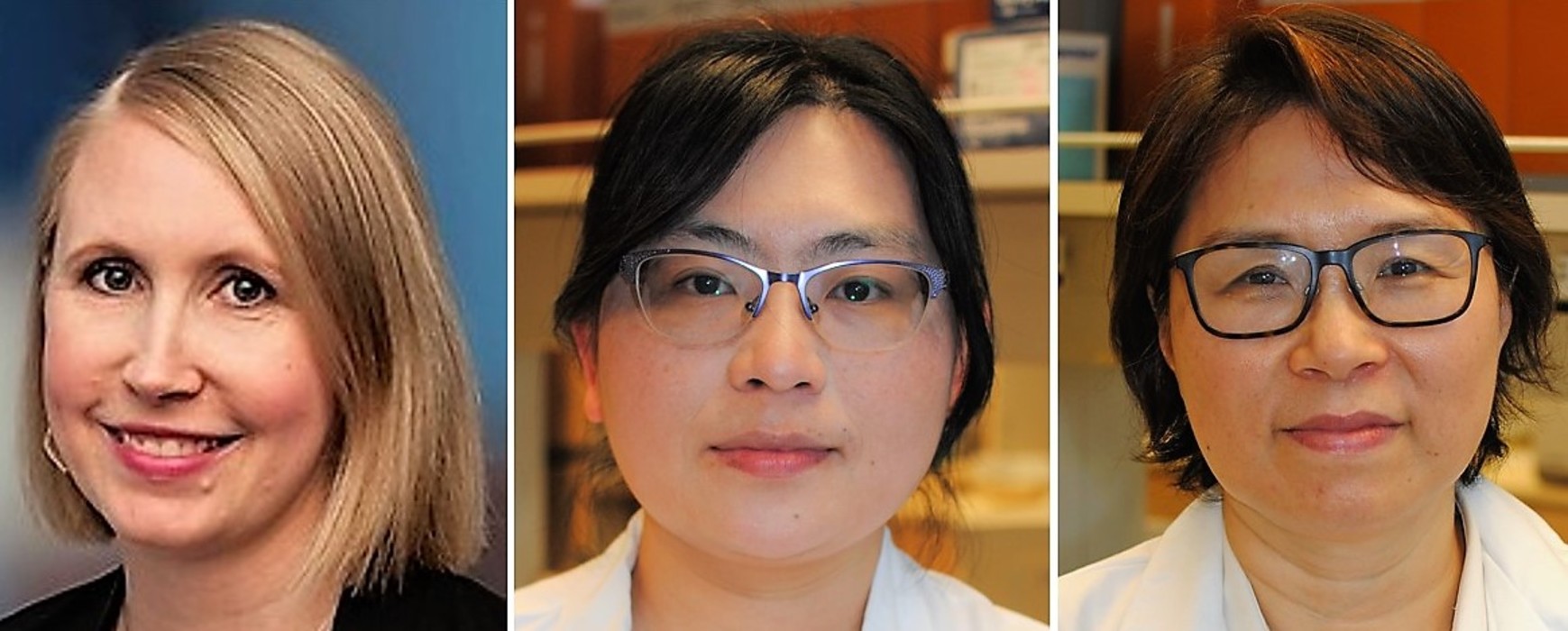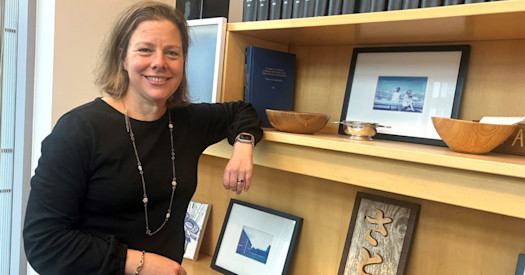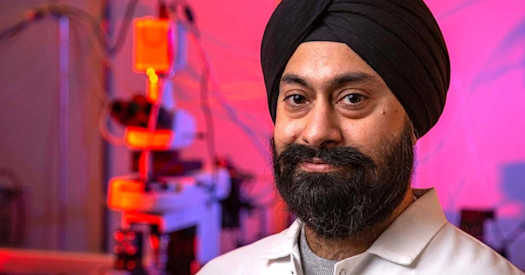
Dr. He Fang (middle) is being mentored by Drs. Cate Paschal (left) and Yajuan Liu.
It’s all about applying research in ‘the real world,’ and analyzing the genetic effects on human disease in a clinical setting. Dr. He Fang, Laboratory Genetics and Genomics Fellow, UW Medicine
Dr. He Fang is fascinated with cytogenetics, the structure and function of chromosomes, and with the ways molecular genetics affect the diagnosis and management of human diseases. She is also determined to grow that fascination into a career conducting research and practicing medicine “for the betterment of our nation’s healthcare system.”
Some might call that an ambitious – if not daunting – aspiration.
But with the help of two experienced researchers – BBI’s Dr. Yajuan Liu at UW Medicine, and BBI’s Dr. Cate Paschal at Seattle Children’s Hospital, serving as her mentors and with a BBI grant of $50,000 – Fang, 36, is confident she will have the mentorship and instruction needed for a “solid foundation” to help fulfill that aspiration.
“My Ph.D. training equipped me with quantitative biophysical and biochemical analysis skills and the mindset of thinking about genetic perturbation and diseases from the ground up,” Fang said. “This grant also enables me to focus on the implementation of novel technologies, manuscript writing, public speaking, and lab management to enhance my ability to become a laboratory director.”
The project has three primary goals:
• Evaluating the feasibility of using 3-D genomic sequencing of chromatin conformation by proximity ligation sequencing (Hi-C) and optical genome mapping (OGM) to detect simple and complex chromosome rearrangements.;
• Assessing the performance of Hi-C and OGM technologies by comparing them with conventional cytogenetic/FISH/microarray methods; and
• Establishing an efficient workflow to detect chromosomal aberrations for further validation as a clinical diagnostic protocol following guidelines of: the American College of Pathologists, standards of the American College of Medical Genetics and Genomics, and guidelines for Clinical Genetics Laboratories.
“This mentoring project will not only enrich He’s career as a scientist and clinical laboratorian, but will also provide our research community more detailed information on different types of chromosomal abnormality,” said Liu, the program director of Laboratory Genetics and Genomics Fellowship and director of Clinical Genomics and Cytogenetics Laboratories at UW Medicine. “This project is part of a collaborative effort that includes training and education to assess and develop new assays and to understand the process of validating and implementing them for clinical service, which will be honed through our multi-institutional mentorship – UW Medicine and Seattle Children’s Hospital –and the infrastructure and experiences available in our clinical laboratories.”
Liu’s research interest is in translational medicine using genomic approaches to aid the understanding of the genetic and molecular etiologies of human diseases.
One of her lab’s projects includes next generation sequencing solutions for cytogenetics and genomics to characterize numerical and structural chromosomal aberrations as well as to copy neutral absence/loss of genetic variation in human diseases.
"As a laboratory geneticist, I am learning this new, cutting-edge technique. It’s great that BBI chose to engage in this collaboration.” Dr. Cate Paschal
Paschal’s experience on genetic testing in pediatric setting will contribute to the success of this project.
“My background in clinical test validation and interpretation of genomic variants, combined with the clinical and technical expertise of my collaborators, is likely to translate into a successful outcome of this project,” she said. “One of the key outcomes is the launch of a comprehensive clinical assay for the characterization of constitutional genomic rearrangements with the potential to shorten the diagnostic odyssey for many of our patients. Clinical implementation of newer cytogenomic techniques will allow more efficient and comprehensive characterization of structural genomic variants and better patient care.”
Paschal also expects all the participants to learn from each other as the project progresses.
“I have no hands-on experience with Hi-C sequencing nor optical genome mapping, so this is an exciting endeavor,” she said. “As a laboratory geneticist, I am learning this new, cutting-edge technique. It’s great that BBI chose to engage in this collaboration.”


